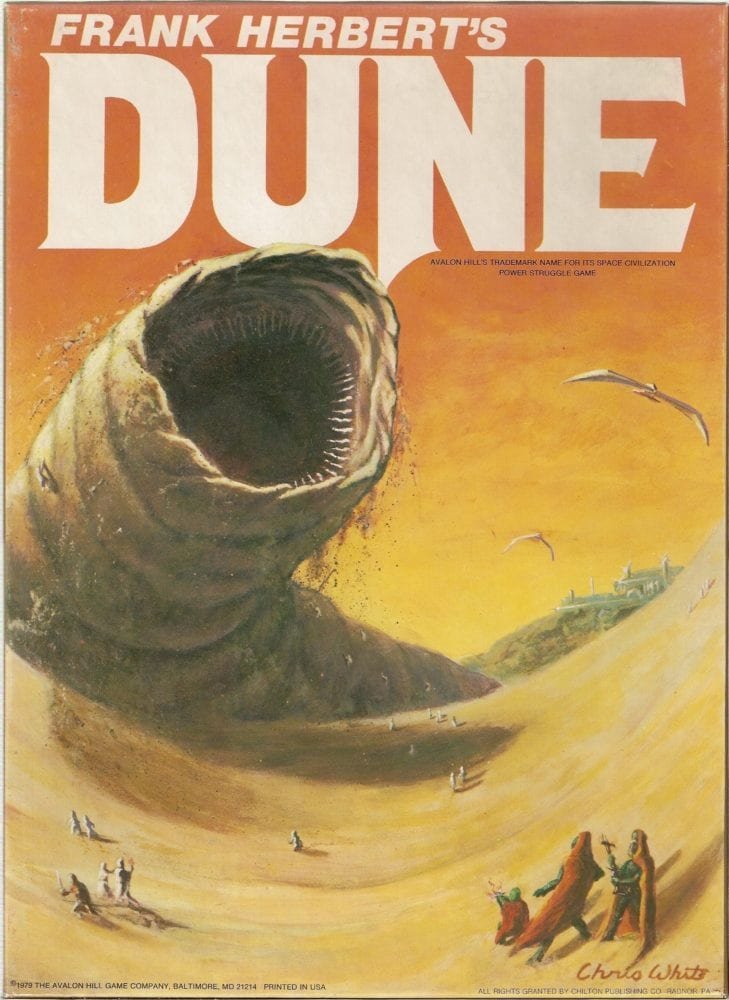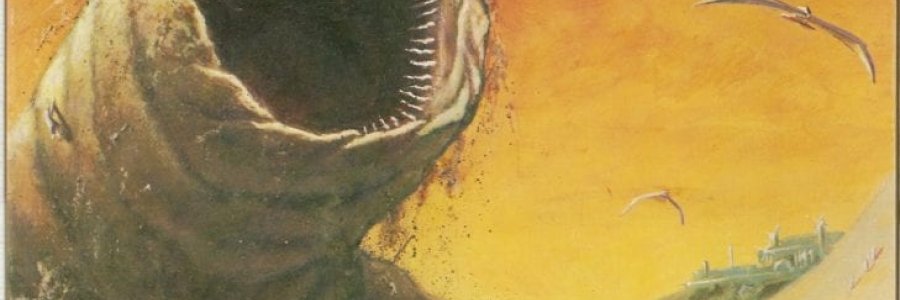How do you review a book set in a wildly inventive universe, a book that combines space travel with drug-taking, religion with ecology, and feudalism with a galactic economy? How do you dig into a novel that's both Hero's Journey and meditation on international energy dependency? How do you get across a novel that delves deeply into the psychology of its characters while toppling an empire?

That is the problem of Dune, and why you hear people praise it, and why those who praise it probably can't explain why they love it very well. Dune is one of those rare works that ticks a whole lot of boxes for fans of both science fiction and serious literature, and also manages to be relevant to the modern day.
Remember what I said about energy dependency? In the future of Dune, the entire universe depends heavily on the use of a powerful, spice-based drug that extends life and heightens consciousness. Unfortunately, that spice is found on only one world: Arrakis, Dune, desert planet. The novel focuses on the power struggles on that planet, as locals are exploited by a harsh system and a new government comes in to try to free them.
The spice is crude oil. It's a resource everyone uses, but can only be found in one tiny part of the world, which leads to oppression and frequent war.
I'm not speculating; Dune's author confirms this in an addendum to the novel. But the book's not just about oil; it's about heavy dependency on any resource, and how that inevitably leads to problems.
But it's also a Hero's Journey about young Paul Atreides, heir to one of the most powerful families in the universe, who is cast adrift from that family and must find his own way in a very hostile environment. Dune is an exciting adventure novel, too, which helps to ground the book and keep it from getting too pedantic in its themes of political strife and environmentalism.
Dune also dives deep into its characters' heads. This is important: in an extremely unusual setting where people are constantly in danger, the reader can't easily understand the stakes. And if you don't understand the stakes, you don't know if a character is making either a reasonable or a dangerous decision.
As a result, Dune dives deep into its characters' heads, spending multiple paragraphs describing a character's internal thoughts. While in other novels this would be dull, we need it so that we understand not just the various power balances in this universe, but also the safeguards that each faction and person has set up to deal with those dangers.
And its author manages to keep that interesting, because he sprinkles the novel with distinctive characters that fit their world. There are no anachronisms; no attempts to include a character type just because it would be popular.
I should also mention that there are many, many Dune novels. They get further away from the depth of the first novel, but they do flesh out many of the themes and story lines kicked off in the first novel. While you don't have to read all of them to understand the first novel, many of the thematic plot lines introduced there are fully resolved in later novels.
In other words, all the themes introduced in Dune don't even fit in the first novel, even though that does tell a complete story.
Dune is a complete package. It's complex and exciting; deep but never ponderous. It's a triumph of science fiction and literature in general.

![[Atom feed]](/user/themes/geek-archaeology/images/atom-feed.png)
![[RSS feed]](/user/themes/geek-archaeology/images/rss-feed.png)
![[iTunes podcast feed]](/user/themes/geek-archaeology/images/itunes-feed.png)